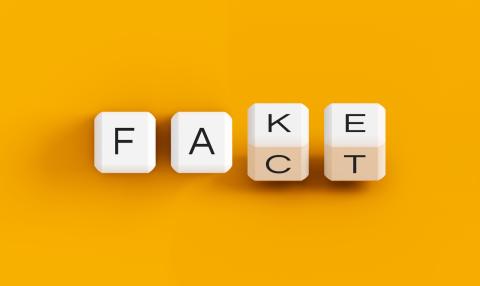How Can We Avoid Spreading Health Misinformation?
“Health misinformation has reached nearly every corner of our society—and it poses an increasing danger to us and to our loved ones,” warns U.S. Surgeon General Dr. Vivek Murthy. “False or misleading information about diseases, illnesses, potential treatments and cures, vaccines, diets and cosmetic procedures are causing people to make decisions that could have dangerous consequences for their health.”
The Office of the U.S. Surgeon General (OSG) tells us that most people who spread false information to friends, families or online are doing so because they mean well and want to be helpful. And there’s a natural temptation to enjoy being first to share an exciting bit of information among our friend group or on social media.
The problem is that while we might mean well, the people who concoct false information often don’t! Those who create deceitful YouTube videos, memes or websites might be selling something, or looking for social media clicks and shares, or have a political agenda—or, they might just be trolling, spreading falsehoods for the fun of it or for a sense of power.
The OSG says these are some common types of health misinformation to watch out for:
- Memes (fun, colorful images or graphics) that were created as a joke, but people started re-sharing them, thinking they were true.
- Websites that look professional (often designed to look like news sites) but the stories are all false or misleading. They have sensational headlines designed to make us click on them.
- Quotations in print or video where the beginning or end have been deleted to change the meaning. The person did say that, but without the full context it’s not an accurate representation of what they said.
- Cherry-picked statistics. Too often we see people choosing the number that supports what they want to argue, but without all the data, they haven’t provided all the context.
- Misleading graphs or diagrams that look official but don’t tell the whole story.
- Old images and posts that recirculate as if they are actually very recent, sometimes altered or with new text added.
So, before you share a bit of health information, ask these questions:
- Did you check with your local public health department or the CDC to see if there is any information about the claim that is being made?
- Did you ask your own doctor or other trained health care professional if they would consider the information to be valid?
- Did you type the claim into a search engine to see if it has been verified by a credible source? Credible sources include medical schools, branches of the government, universities, professional health organizations and hospitals.
- Did you check out the “About Us” page on websites to see whether the source is trustworthy? Does the site have an editorial board? Is the information reviewed before it is posted?
Even if we’re confident in our sources, we should take care when it comes to health care information. For example, in a rapidly changing situation like the pandemic, scientists are constantly learning more, and as they discover new information, they are able to better pinpoint the best advice to give. This is a case where if we spread information that’s six months old, even from a top authority, we might prevent someone from making the very best decisions about their own health care and that of their families.
So … a good rule is, if you’re not sure, don’t share!
